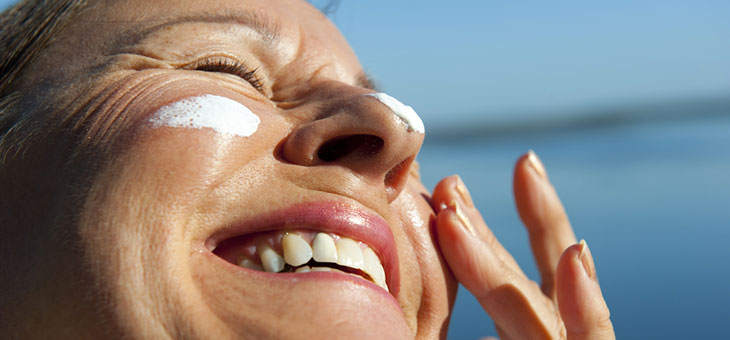Most people living in Australia are pretty savvy about sun protection and the need to wear sunscreen, but is this just a marketing ploy? What are the common sunscreen myths?
Being tanned protects you from the sun
There is no such thing as a safe tan, and being naturally darker skinned will not protect you from skin cancer.
Higher SPFs are a waste
There are significant differences in the protection offered between SPF 15, 30 and 50. The biggest difference, it turns out, is in making up for your poor sunscreen application. Based on how people actually apply sunscreen, studies have shown that an SPF 50 sunscreen will give you the protection of an SPF 20. The lower the SPF, the less margin for error you have. The two biggest application mistakes people make are applying too little, and not reapplying often enough (or at all).
You don’t need sunscreen on a cloudy day
While UV levels are usually lower in winter, you are just as likely to get a bad burn on a cloudy day in summer as one that is bright and sunny. If you’re considering not wearing sunscreen, you’re better off checking the UV rating for the day, instead of looking at the clouds, to help make your decision.
Sunscreen causes vitamin D deficiency
Just 15 minutes of incidental sun on your skin (the kind you might get throughout the day getting in and out of your car, or walking to the shops) is enough to give you all the vitamin D you need. It is nearly impossible to sunscreen and cover up well enough to avoid getting enough sun to process all the vitamin D your body needs. If you are concerned about being deficient, you are better off taking a supplement than not wearing sunscreen.
Skin cancer isn’t so bad because you can see it and get it removed
Skin cancer kills nearly 2000 Australians every year. Skin cancers can metastasise, move around the body, cause permanent scarring when removed, or require chemotherapy for a treatment.
And a truth: Sunscreen prevents ageing
Your regular old sunscreen might actually be the fountain of youth. Australian researchers have found that sunscreen not just slows, but completely prevents photoageing – that is, the skin damage caused by ultraviolet radiation from the sun that causes wrinkles and sun spots. So, as summer approaches, whip out the sunscreen and remember to slip, slop and slap.
Related articles:
Wristband can track sun exposure
Natural sunburn remedies
Which sunscreen is right for you?

